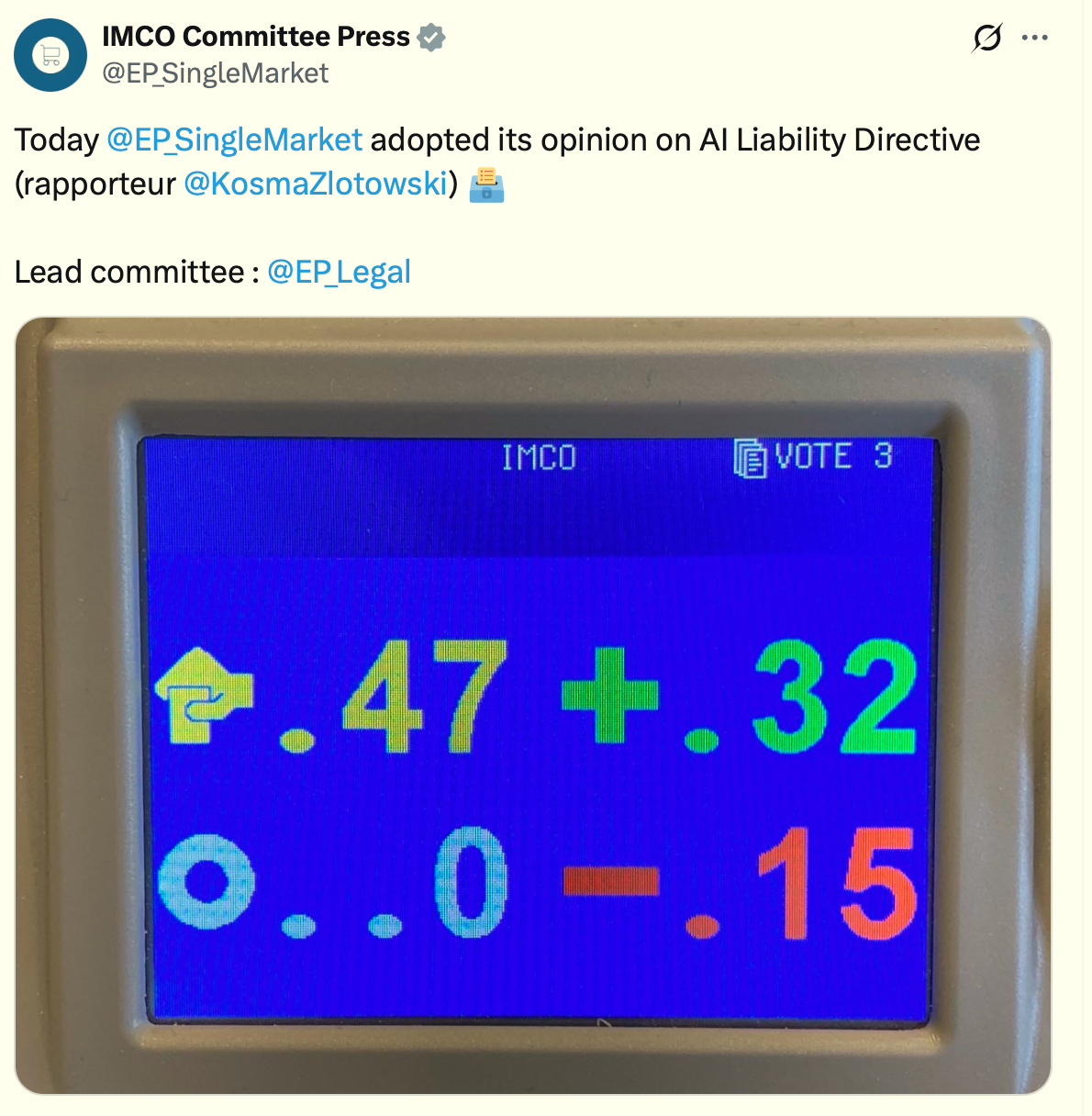EP’s IMCO rejects AI Liability Directive, calling it a gateway to “predatory litigation”
Yesterday, the European Parliament’s Committee on the Internal Market and Consumer Protection (IMCO) adopted its opinion on the AI Liability Directive (AILD), calling it “premature and unnecessary”.

Good news from the European Parliament’s Committee on the Internal Market and Consumer Protection (IMCO) - yesterday, the Committee adopted its opinion on the AI Liability Directive (AILD), calling it “premature and unnecessary”. Of the 47 committee members present, 32 voted in favor of the opinion and 15 against.
The opinion criticized the need for the AILD altogether, emphasized principles of better regulation and evidence-based policymaking, and questioned the harmonization arguments put forward in its favor.

Harmonization argument challenged
One of the key arguments used by critics of scrapping the AI Liability Directive is that, without it, AI developers would face 27 different legal regimes across the EU, making compliance and scaling significantly more difficult.
However, IMCO’s opinion firmly rejected this claim, stating that the harmonization argument is merely "speculative".
“The harmonisation argument appears speculative, and further clarification is needed to substantiate this claim. Without clear evidence of market failures or difficulties applying existing liability rules to digital technologies, new legislation risks creating unnecessary complexity.”
No market failure - AILD would only make "predatory litigation" easier
Moreover, IMCO stated that there is no legal gap or market failure that would justify the creation of a separate AI Liability Directive, because the existing frameworks - primarily the AI Act and the recently revised Product Liability Directive - are sufficient.
It also warned that the AILD could, in theory, facilitate “predatory litigation”.
“Any theoretical benefits of this proposal are outweighed by the fact that the AILD does not reallocate liability but simply makes (predatory) litigation, especially third-party litigation funding, easier. To ensure a stable investment climate, third party funding must be addressed before any more progress on AILD is made.”

